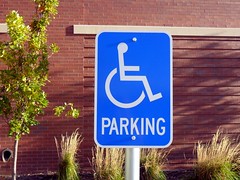AP Gov Ch. 5 Flashcards
Terms : Hide Images [1]
| 9281701507 | Dred Scott v. Sandford | a slave who had escaped to a free state enjoyed no rights as a citizen and congress has no authority to ban slavery in the territories |  | 0 |
| 9281701508 | Jim Crow Laws | segregationist laws Limited rights of blacks. Literacy tests, grandfather clauses and poll taxes limited black voting rights |  | 1 |
| 9281701509 | 13th Amendment | ratified after the civil war that forbade slavery |  | 2 |
| 9281701510 | 14th amendment | - privileges and immunities - due process of law - equal protection of the laws (first and only part of the constitution to invoke the idea of equality) |  | 3 |
| 9281701511 | 15th amendment | extend suffrage (voting) to african americans |  | 4 |
| 9281701512 | Classifications under the 14th amendment equal protection clause | - principal tool for waging struggles for equality - laws, rules inevitably classify people... but they cannot violate the equal protection so... - how do courts whether a classification in a law or regulation is permissible or violates the equal protection clause? - supreme court established 3 levels of analysis called standards of review (strict scrutiny, intermediate scrutiny, reasonableness) |  | 5 |
| 9281701513 | strict scrutiny (inherently suspect) | Supreme Court guideline for determining if government can make racial distinctions. According to this guideline, such distinctions are highly suspect and are allowed only if they are narrowly tailored to serve a compelling government interest and there is no other way to accomplish the purpose of the law. - racial and ethnic qualifications are under strict scrutiny |  | 6 |
| 9281701514 | intermediate scrutiny | - classification based on gender - court presume them to be neither constitutional nor unconstitutional - such law must bear a substantial relationship to an important public purpose (draft) |  | 7 |
| 9281701515 | reasonableness | - classification must bear a rational relationship to some legitimate governmental purpose - anyone who challenges classifications has the burden of proving that they are not reasonable but arbitrary (singles out specific people) - ex: states restricting right to vote to over 16 is reasonable | 8 | |
| 9281701516 | Plessy v. Ferguson | provided constitutional justification for segregation -legalized state ordered segregation so long as the facilities for blacks and whites were equal |  | 9 |
| 9281701517 | Brown v. Board of Education | school segregation is inherently unconstitutional because it violates the guarantee of equal protection - marked the end of legal segregation |  | 10 |
| 9281701518 | De Jure segregation | segregation by law - ex: "separate but equal"... blacks and whites allowed to be segregated as long as they were provided equal rights and conditions |  | 11 |
| 9281701519 | De Facto Segregation | segregation in practice - ex: whites voluntarily segregating themselves |  | 12 |
| 9281701520 | Civil Rights Act (6 provisions) | 1- racial discrimination illegal in places of public accommodation (hotels) 2- no discrimination in employment 3- create Equal Employment Opportunity Commission (EEOC) to enforce = protection against job discrimination 4- withhold grants from institutions that practice racial discrimination 5- strengthen voting rights legislation 6- authorized US justice dept. to initiate lawsuits to desegregate public schools and facilities |  | 13 |
| 9281701521 | 24th amendment | declared poll taxes void in federal elections (2 years later, voided poll taxes in state elections in Harper v. Virginia State Board) |  | 14 |
| 9281701522 | Voting Rights Act of 1965 | law designed to help end formal and informal barriers to African American suffrage. Under the law, many more African Americans registered to vote and the number of elected African American officials increased dramatically |  | 15 |
| 9281701523 | Korematsu v. United States | -1944 Supreme Court case where the Supreme Court upheld the order providing for the relocation of Japanese Americans. It was not until 1988 that Congress formally apologized and agreed to pay $20,000 to each survivor. |  | 16 |
| 9281701524 | 19th Amendment | constitutional amendment adopted in 1920 that guarantees women the right to vote |  | 17 |
| 9281701525 | Equal Rights Amendment | equality of rights under the law shall not be denied nor abridged (introduced, fell short, but then passed later) |  | 18 |
| 9281701526 | American with Disabilities Act | required public facilities to make reasonable accommodations for people with disabilities and prohibits discrimination against these individuals in employment |  | 19 |
| 9281701527 | Affirmative action | special attention for members of some previously disadvantaged group (equal opportunity --> equal results) |  | 20 |
| 9281701528 | Regents of the University of California v. Bakke | a state university may weigh race or ethnic background as one element in admissions but may not set aside places for members of particular racial groups |  | 21 |
| 9281701529 | Lawrence v. Texas | overturned Bowers v. Hardwick when it voided a Texas anti-sodomy law on the grounds that such laws are unconstitutional intrusions on the right to privacy |  | 22 |
| 9281701530 | DOMA | - defense of marriage act - permits states to disregard same-sex marriages even if they are legal elsewhere in the United States | 23 |
